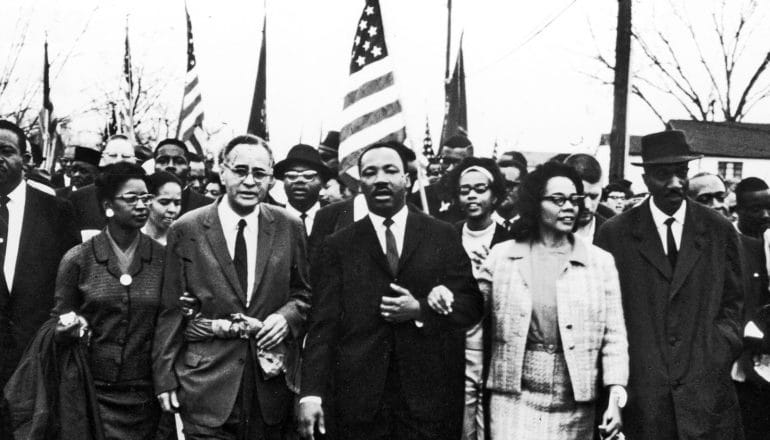
Leaderless, decentralized protest is both a strength and a weakness, historian and civil rights scholar Clayborn Carson argues.
As spontaneous and loosely organized demonstrations against the death of George Floyd continue to erupt across the world, Carson has a message to activists: There needs to be some kind of leadership stating objectives of the current movement.
As a student at UCLA in 1965, Carson, a professor of history at Stanford University and founding director of The Martin Luther King, Jr. Research and Education Institute, participated in civil rights activism, including the infamous Watts Rebellion, a six-day riot in Los Angeles that resulted in 34 deaths, over 1,000 injuries, almost 4,000 arrests, and $40 million in property damage.
Carson’s has written several books on the subject of civil rights as well, including In Struggle: SNCC and the Black Awakening of the 1960s (Harvard University Press, 1981); Malcolm X: The FBI File (SkyHorse, 1991); The Struggle for Freedom: A History of African Americans (Pearson; 2005, 2010, coauthor); and a memoir, Martin’s Dream: My Journey and the Legacy of Martin Luther King, Jr. (Macmillan, 2013).
He thinks Martin Luther King Jr. would urge today’s activists to clearly articulate the goals and objectives of their protest.
Unless goals are made clear by an articulate spokesperson, the movement may lose control of its messaging, Carson warns.
Here, Carson reflects on what he has learned over a lifetime of protest and how today’s demonstrations differ from the civil rights activism he participated in as a student:
The post Clayborn Carson: Leaders turn protest into change appeared first on Futurity.
from Futurity https://ift.tt/3eWQfh5
No comments:
Post a Comment